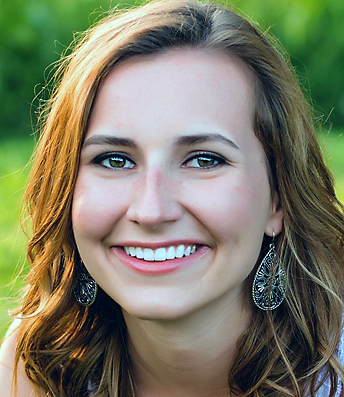Home » News » The Rhythm of Research in the Music Cognition Lab
The Rhythm of Research in the Music Cognition Lab
Posted by anderc8 on Thursday, March 16, 2017 in News, TIPs 2015.

Vanderbilt junior Genevieve Kupsky is a pre-med Medicine, Health and Society major with a Violin minor in the college of Arts and Sciences
Written by Vanderbilt junior Genevieve Kupsky, a pre-med Medicine, Health and Society major with a Violin minor in the college of Arts and Sciences
The world of pre-meds at Vanderbilt is unforgiving, lonely and at times unrewarding. It is a community of students with the determination of steel and a “do it or die trying” attitude. “All I have to do is beat the curve” is the mantra of many as we prepare for battle against our peers in pursuit of the A’s that are only given to 10 percent of the class. Amidst this harsh and cutthroat environment, I have found an oasis that has reminded me of my love for science once again—the Music Cognition Lab.
Research experience is essential for medical school admission these days. Naturally, I was on the hunt for a lab, any lab, that I could tolerate for a few years and hopefully boost my application. The Music Cognition Lab surprised me with its unique goals and people. Was it possible to do science that I found relevant and fulfilling? Was it possible to incorporate my love for music with my fascination with the human body? I found the answer to these questions and more when I began working with Dr. Reyna Gordon in what I consider to be a community of the most well-rounded and interesting people I have ever met.
Everyone who is part of the lab has a shared love of music. Most of us play at least one instrument and many of us have a deep interest in people-centered clinical work. From Speech Language Pathology students to medical students to researchers interested in human development and neuroscience, each person in the lab has something very interesting to contribute.
My work focuses on the underlying genetics that shape rhythm and language ability. For many children with Specific Language Impairment (SLI), rhythm and timing is more difficult for them in a musical setting than children with typical language development. There is some literature on genetic associations of language impairment, and even less literature on genetic associations of rhythm ability, but very little research has attempted to connect the two components through a genetic approach.
We are working with BioVU, a data bank of the genetic information of thousands of Vanderbilt patients, to perform a Genome-Wide Association Study (GWAS). These studies are used to examine associations between genetic profiles and phenotypes. The BioVU resource, coupled with the intellectual powerhouse at the Vanderbilt Genetics Institute, is absolutely incredible because it gives us access to the complete de-identified medical records of a large number of subjects while allowing us to examine any genetic similarities between patients who have language impairments. We are collaborating with other institutions who have their own data repositories to extend our search, which means that we will be able to perform one of the largest GWAS studies of patients with SLI. This project has been fascinating for me— having the ability to read medical records and think critically about how a condition may have an effect on an individual’s language has proved challenging and thought-provoking. It’s like a puzzle to examine which diagnoses would include or exclude a patient from our study and why, and sometimes requires some pretty thorough investigation into the care that Vanderbilt has provided for them.
Another exciting part of our work is our study with kids who we are testing for rhythm and grammar abilities. We have them spit into a tube— which some kids find to be the most entertaining part of the study visit— and genotype the kids. We then compare their genotype to their test scores and look for associations between their performance and their DNA. It has been such an interesting experience to see the data from unknown patients who are just names and numbers to me in BioVU be applied to kids who could really benefit from this research if they are language-impaired. This part of the work bridges the gap between language impairments and rhythm abilities, and could eventually evolve into a genetic- or rhythm-based diagnosis or even treatment of specific language impairment.
Never in a million years did I think I would find a place where my passion for music and my love for science could combine in such a seamless way. The Music Cognition lab has become so much more to me than a job experience to put on my applications. It has become a place of learning, of shared appreciation for the arts and of big ideas that have expanded my horizons more than I ever thought possible.
